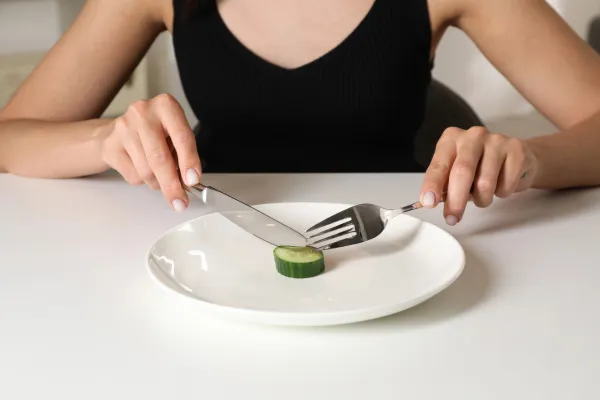
Debunking 5 Healthy Eating Myths: A Guide for Women Over 50
If you’ve ever felt like healthy eating is confusing, you’re not alone. The nutrition world is packed with myths that have been around for decades—especially the ones we grew up believing in the ‘80s and ‘90s. But just because something has been repeated for years doesn’t make it true.
For women over 50, making informed choices about food is more important than ever. So, let’s break down five of the biggest healthy eating myths that might be holding you back from feeling your best.*
1. Myth: Eating Healthy Is Too Expensive
💡 The truth: Eating well doesn’t mean shopping at expensive health food stores or buying organic everything.
Yes, some specialty items cost more, but the foundation of a healthy diet—vegetables, fruits, whole grains, and protein sources—can be affordable when you plan wisely.
✅ Budget-friendly ways to eat healthy:
Buy seasonal produce or choose frozen vegetables (just as nutritious as fresh).
Purchase beans, lentils, and eggs—cheap, protein-packed staples.
Look for sales and bulk discounts on meats and grains.
Reduce food waste by meal planning and using leftovers creatively.
Eating healthy doesn’t have to mean spending more. It just means making smart choices with what’s available.
2. Myth: All Fats Are Bad
💡 The truth: Your body needs fat—just the right kinds.
For decades, we were told fat was the enemy. Everything had a “low-fat” label slapped on it, and we believed that avoiding fat would help us lose weight. But cutting out fat entirely can do more harm than good.
✅ Healthy fats your body loves:
Avocados – Great for heart health and keeping you full.
Olive oil – A staple in Mediterranean diets for good reason.
Nuts & seeds – Packed with healthy fats and protein.
Fatty fish (salmon, sardines, mackerel) – Supports brain and heart health.
On the flip side, avoid processed trans fats found in margarine, fried foods, and packaged snacks. These are the real villains, not the healthy fats from whole foods.
3. Myth: Carbohydrates Should Be Avoided
💡 The truth: Carbs aren’t the enemy—processed carbs are.
If you’ve ever been told that cutting out carbs is the secret to losing weight, it’s understandable why you’d be cautious. But carbohydrates fuel your body and brain—especially for women over 50. The key is choosing the right kinds.
✅ Smart carb choices:
Whole grains (quinoa, brown rice, oats) instead of refined white bread and pasta.
Vegetables & legumes – Full of fiber, vitamins, and slow-digesting energy.
Berries & apples – Natural sugars with nutrients and fiber.
Instead of cutting carbs completely, focus on eating high-quality, fiber-rich carbs that keep your blood sugar stable and energy levels steady.
4. Myth: Fresh Produce Is Always Healthier Than Frozen or Canned
💡 The truth: Frozen and canned produce can be just as nutritious (or even more so) than fresh.
Fresh vegetables and fruits start losing nutrients the moment they’re picked, especially if they travel long distances. Frozen produce, on the other hand, is often picked at peak ripeness and flash-frozen, locking in nutrients.
✅ Best choices for frozen and canned produce:
Look for plain frozen veggies without added sauces or salt.
Buy canned beans and tomatoes with no added sodium.
Choose fruit packed in water instead of syrup.
Fresh is great, but don’t be afraid to stock up on frozen and canned options to make healthy eating easier and more convenient.
5. Myth: You Must Give Up Your Favorite Foods to Eat Healthy
💡 The truth: You don’t have to cut out the foods you love—you just need balance and moderation.
The idea that “healthy eating” means no sugar, no carbs, no fun, and no enjoyment? No, thanks. That’s a fast track to frustration and giving up altogether.
✅ How to enjoy your favorite foods while staying healthy:
Follow the 80/20 rule – 80% nutrient-rich foods, 20% room for flexibility.
Swap ingredients wisely – Love pasta? Try whole grain or lentil pasta instead.
Enjoy treats mindfully – A square of dark chocolate or a scoop of ice cream now and then won’t ruin your health.
Healthy eating isn’t about deprivation—it’s about learning to make choices that serve you without guilt.
Final Thoughts
If any of these myths have made healthy eating feel overwhelming in the past, it’s time to let them go. Eating well doesn’t have to be expensive, complicated, or restrictive. It’s about small, smart changes that make a real difference.
👉 Want more clarity on nutrition? Grab my free guide: "Healthy Eating Myths Debunked" for even more insights on what really matters when it comes to food.
